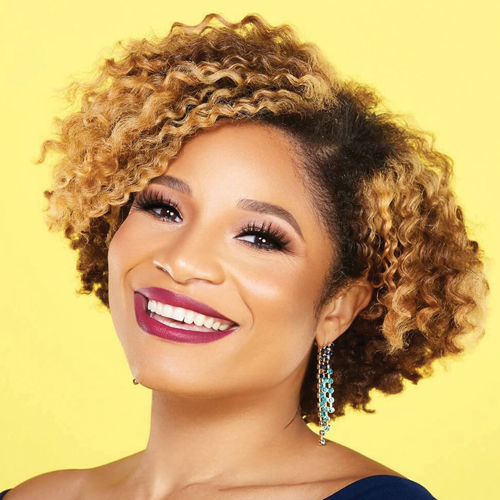
Hall McKissic is the co-founder and head of creative at Pop’N Creative, a Black women-owned, women-led multicultural marketing agency that has rapidly expanded into a 15-person team with 200% year-over-year revenue growth. Her leadership is reflected in the agency’s diverse portfolio, which includes partnerships with prominent brands such as Revolt, Cartoon Network, National Geographic and BET+. In addition to growing the agency, she has developed a robust internship program.
Who would play you in a movie about your life? Nia Long. She has this boss chick, no-nonsense professional character down, yet she also has the fun girlfriend side to her character that would reflect me perfectly.
Has the internet created more inclusion or exclusion? The internet has given people the ability to discover and become aware of almost anything in the world, whether it’s places, faces, or spaces. However, I don’t believe it’s created more inclusion. I think the more accurate answer is that it has created the ability to be more inclusive should people choose to do so. The best thing about the internet is that it allows people to connect globally. We can learn about other cultures, people’s personal journeys, and discussions regarding personal preferences as people continue to discover what makes them feel seen. But it’s imperative upon the individual using the internet to actively search for these things. If you want to be small-minded, the internet helps you do that as well. The internet is a tool, so what matters most is that those of us who create works and images that reflect the world today do our best job to increase inclusivity at every turn. People will change, pronouns and identities will change, and we need to keep up with that change to reflect the world we live in and the beautiful diversity of the people living it, not just the world we know personally. That’s the beauty of using the internet: exploration and education.
What do you think is the biggest misconception about diversity within your industry? The biggest misconception about diversity in the industry is that outward, public-facing diversity is what matters most. When ad agencies create campaigns, these days they work hard to reflect the diversity they “think” they need on screen, such as casting a Black, Asian, and Latino person in an ad (usually one of each so as to not “miss” a representation). While it’s important to cast diverse people (and please, more than the token 1 per ethnic group), it’s even more important to think through the diversity behind the scenes, in your leadership, your staff, and the vendors you hire. For example, one ad agency partner we collaborate with showed us a client campaign script. Based on the script, I knew everyone who read it heard a Caucasian male voiceover talent in their head. When I mentioned it, the white woman sitting next to me gasped and said, “Oh my gosh, I totally assumed it would be a white male. But now that you mention it, why?” When you have a diverse team internally and empower those voices to be heard regardless of rank, these team members will ask the right questions and probe on how to be more inclusive in all aspects—race, culture, gender identity, and more. Keep in mind: everything signals. Voice, visuals, language, and situations all create signals that make the audience feel included or excluded. It’s not enough to think your barely diverse team internally can think of everything. Hire or invite others to the table to challenge and probe on inclusivity in your work. That’s the way we continue to improve and be more inclusive. Keep this in mind the next time you are brainstorming internally.
What does work-life balance mean to you? Work-life balance is such a funny term to me because when you’re building your career or business, balance is often out of whack, especially if you’re married and have kids. This is one of my favorite things to discuss when I do my motivational speaking (my real passion). One former boss told me once, as she was running late to her kid’s performance AGAIN, that she felt like she was doing a mediocre job at everything—being a mom, wife, and VP. I totally get that now as a mom, wife, and business owner, but for me, it’s less about being mediocre at all things and more about having moments of kickassness and moments where I screw up. It’s like my dad says: you have to ride the waves. My mother also showed me how to juggle life and keep it all in perspective, as she had 5 kids, and that was the biggest job ever. The most crucial advice I could give anyone is a saying a dear friend says to me all the time: you’re never as great as you think you are on your best days, and you’re never as bad as you think you are on your worst. Remember that, and you’ll be just fine in this thing called life.